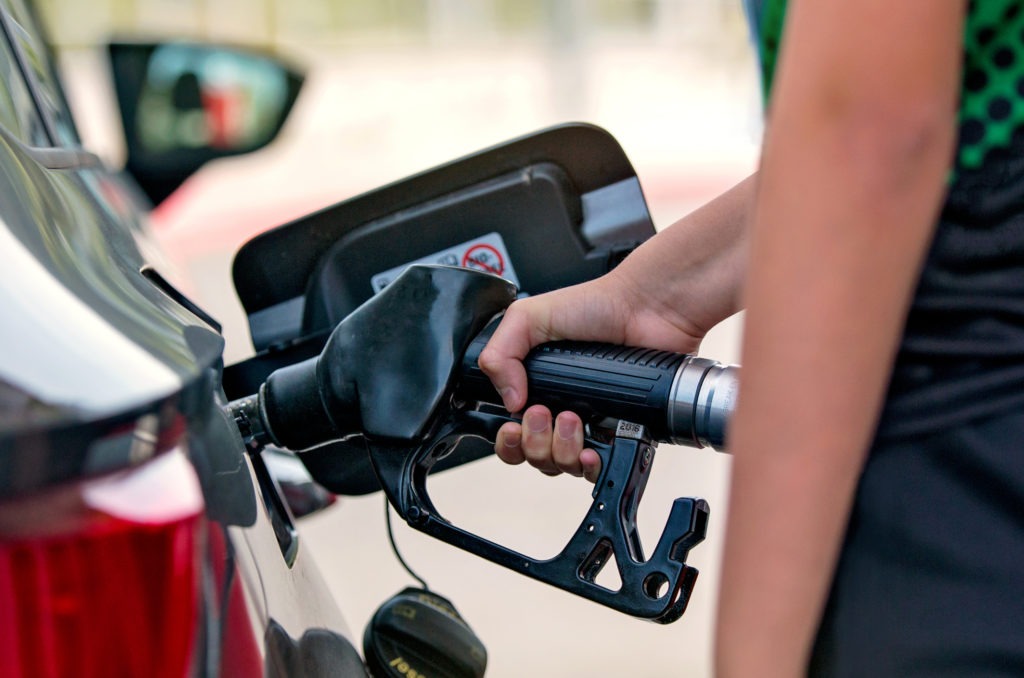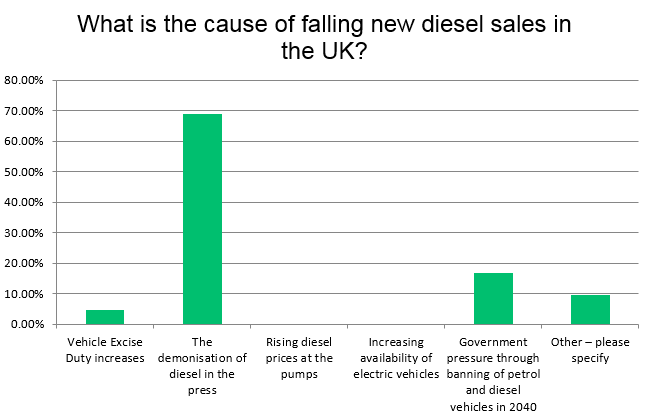Survey results: What is causing diesel sales to collapse in the UK?
24 August 2018

24 August 2018
Diesel sales in the UK are falling rapidly, with the market already down by 29.6% year-to-date, following a decline in 2017.
However, demand for diesel is still apparent, as sales in the used car market are up by 3.2% with 868,573 sales in the three months between April and June 2018. Therefore, Autovista Group wanted to know what readers of the Daily News Brief thought was the problem with the sale of new vehicles.

A clear winner in this poll was the demonisation of diesel in the media, with 69% of the vote. Ever since the Dieselgate scandal, some newspapers, magazines and websites have been jumping on the bandwagon to highlight any problems arising from emissions tests and air pollution levels. As these media outlets have a lot of influence on the buying public, it is likely that this negative attitude would have a big impact.
The second choice on the poll with 17% of the vote was the UK Government putting pressure on the market with the banning of both petrol and diesel vehicles from 2040. This is a result of various studies that suggest the banning of conventional vehicles from sale at first registration will help improve air quality.
The third was the ′other’ category with 9% of the vote. A common thought in this area was the introduction of charges for diesel vehicles driving in cities. In Germany, some cities are already banning or planning to ban, diesel cars from entering certain areas. These plans are likely to spread across the continent. However, in the UK, London has implemented the T-Charge, a £10 (€11.22) cost on top of the capital’s congestion charge for vehicles not meeting Euro 4 standards. Additionally, certain London boroughs are considering adding extra money to parking charges for diesel vehicles.
Finally, with 5% of the vote was the increase in vehicle excise duty (VED) for diesel vehicles. In 2017, new VED rates caused the new sales market to crash, with April registrations dropping after those looking for new cars rushed to get them in March. This year, a new rule was bought in for diesel, with vehicles entering the band above their emissions category for the first year of registration. This makes them even more expensive to purchase, putting drivers off. This has caused some confusion for car manufacturers, as newer diesels are cleaner than their older counterparts are, so taxing them more does not make sense.
Some comments were left in this poll. One user said: ′If end users bought what they need instead of what they are encouraged to buy by government pressure, all would make sense,’ echoing the thoughts of SMMT chief executive Mike Hawes in an Autovista Group interview.
Another user suggested that the situation was not as bad in Europe, and therefore both the government and the press were to blame. Another added that continued government meddling was not helping the situation at all. Another user said that people perceive diesels to be bad for the environment with falling residual values and petrol vehicles becoming almost as economical, thanks to advances in engine technology and smaller, turbocharged engines.